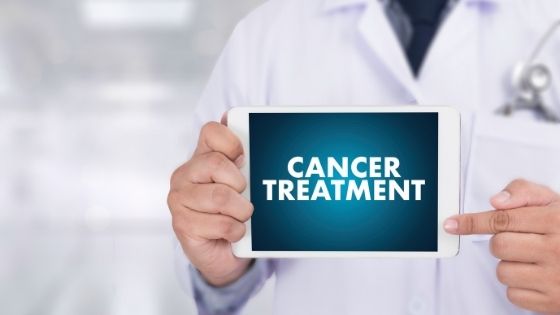Learning that you have cancer can turn your life upside down in an instant and land you in a dilemma about what to do next. The anxiety, fear, anger, and hopelessness stemming from your condition can leave you physically and emotionally devastated. However, holding onto such negativity can also decrease your window to make a recovery.


Living with a chronic illness like cancer is challenging. From the build up of scar tissue due to surgery to the rapid hair loss from chemotherapy, everything after a cancer diagnosis can take a toll on your health. These and many other unprecedented challenges will most likely make the management of this illness overwhelming. Yet, your courage, willpower, and a few changes in your lifestyle can help you navigate this illness and ensure longevity.
If you or your loved one is the victim of this fatal disease, we can help you fight this battle head-on. Read below to find some helpful tips that may ease your new journey.
Look for financial resources
Alongside the physical and emotional impact of this disease, what’s going to weigh you down are the long-term expenses of treatment and medication. You may be required to take time off from work for treatment purposes. Moreover, minor expenses like parking charges, travel expenses, and additional medication may cost you a pretty penny. Thus, a crucial step in managing cancer treatment involves getting financial aid.
For instance, you can file a mesothelioma lawsuit if you were exposed to asbestos at your previous workplace. Or you could reach out to charitable organizations that help patients fund cancer treatment. Financial aid helps in all their treatment expenses, including diagnostic tests, medication, and surgical purposes. So, contact your treatment provider and explore your financial resources.
Know more about your disease
After you finally accept the reality of having cancer, your mind is likely to bombard you with an endless number of questions. Even if it doesn’t, be sure to get basic information regarding your condition. Ask your doctor about the possible cause, treatment options, and chances of recovery in detail.
You can start with questions like what kind of cancer do I have? What are the possible treatment options? How much has my cancer spread? What physical and physiological changes can I expect after the diagnosis? Knowing such details is instrumental for your speedy recovery. Consider taking a family member or friend along during your initial visits to the doctor to help you remember the doctor’s instructions.
Accept help from your loved ones
You may feel like a burden on your family, but it is far from the truth. Your loved ones don’t want to see you suffer in pain. Thus, accept their help without hesitation. Let them help you in household chores, preparing meals, doctor visits, etc. This will help them achieve a feeling of contribution during a hard time.
On the flip side, encourage your family to accept help from neighbors or friends. Your treatment is bound to put them under a lot of stress. Thus, a little assistance from others can go a long way in helping them stay healthy and preventing caregiver burnout. In this way, you and your family can fight the illness together by supporting and strengthening each other.
Be aware of the possible physical changes
After a cancer diagnosis, you are likely to experience some of the worst times of your life. You must brace yourself for the possible changes that accompany treatment and make it even harder. Amongst these, the most common side effects are hair loss, fatigue, severe pain, and weight gain or loss.
Thus, ask your doctor beforehand about such changes and devise your coping method. For example, consult image experts for tips for clothing, makeup, and hairpieces for dealing with the issue of hair loss. These tips will also help you feel more comfortable and help with self-acceptance. The good news is that insurance often covers accessories like wigs, prostheses, etc. Also, you can get in touch with other cancer survivors to ask for their suggestions regarding such matters.
Try to maintain a healthy lifestyle
A cancer diagnosis is sure to affect your lifestyle. Take this as an opportunity to make healthy choices if you are used to unhealthy habits.
Kickoff such habits and start healthy eating. Cut down on high-calorie foods and start having low-calorie foods like lean proteins, vegetables, fruits, fish, and high fiber foods like whole grains, nuts, etc. Geta good amount of rest to help your body endure fatigue, stress, and pain caused by treatment. Stay hydrated as it helps lessen the severity of treatment side effects. Are we missing something?
Yes, exercise is also beneficial for cancer patients. Staying active can help ward off fatigue and stress symptoms. Adopting a few healthy habits in your daily routine can help you return to your old, normal life more easily.
Communicate more
Staying strong during your cancer treatment is undoubtedly crucial for a speedy recovery. However, if you hide your emotions, they will suffocate you. Although you don’t want to worry your family and friends but maintaining a tough front too often can make you feel isolated. Thus, emotional ventilation is necessary to get you through this challenging journey.
Try to maintain honest, two-way communication with your loved ones and doctors. In this way, you can communicate all your worries concerning the treatment and other issues. Your loved ones will also be able to support you more if you keep your lines of communication open. You can also join a support group and get emotional support from others suffering from the same condition as yours.
Conclusion
Living with cancer is like crossing a bridge between life and death. Your persistence, willpower, and adherence to the treatment plan can either enhance your chances of recovery or lessen the time you have remaining. If you fail to take the right steps one time, it may cost you physically, emotionally, and financially. Alongside adherence to the treatment procedures, you need to adopt a few crucial tips for rapid recovery.
Explore financial aid options you can avail of, learn more about your condition, accept help from people, communicate, and incorporate healthy habits in your lifestyle. Following these tips can help you recover fast and ensure a good quality of life and treatment.
















